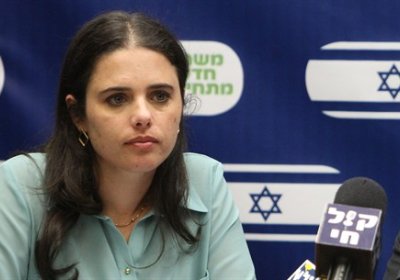Israel's latest military onslaught, Operation Protective Edge, resumed on August 8 with fresh bombings that killed a child and injured 15 other Palestinians, teleSUR's Gaza correspondent Noor Harazeen reported that day.
It came after Israel refused Palestinian demands to lift its crippling siege — an essential move to give the battered Gaza Strip any hope of recovery.
National liberation
Cuba calls for US to end covert operations
The Cuban government has called on Washington to halt hostile covert operations against it, the Morning Star said on August 7.
An Associated Press investigation revealed that a US government program had sent young Latin Americans to Cuba on political missions posing as AIDS-awareness workshop organisers.
A dove
that flew off
just after the fall of Afghan Buddha
Didn’t have enough
Unoccupied airspace
Unoccupied skies
To flap its wings to restart the heart beats gone numb
Of zillions resting in
Graves
Segregated apart as
For the occupant and by the ccupied.
The names on the tombstones
of the graves of the occupied
Could later become undecipherable,
Though they
Far outnumber that of the occupants.
Hope the dead never wake up,
to scrutinize their underrepresented statistics,
to check the word limit of reports from Gaza,
The following statement by the Network in Defence of Humanity -- in defense of Palestine and encouraging people to join the boycott, divestment and sanctions campaign targetting Israel -- has been signed by Bolivian President Evo Morales, former Honduran president Mel Zelaya, Nobel peace prize winner Adolfo Perez Esquivel, Uruguayan author Eduardo Galeano, Cuban musician Silvio Rodriguez and many more (see list below).
The Ghetto Fights, Warsaw 1943-45
Marek Edelman
Bookmarks, 2013
98 pp., $14.00
“Through the din of German cannons, destroying the homes of our mothers, wives and children; through the noise of their machine guns, seized by us in the fight against the cowardly German police and SS men; through the smoke of the Ghetto, that was set on fire, and the blood of its mercilessly killed defenders, we, the slaves of the Ghetto, convey heartfelt greetings to you.”
Ecuador has announced the opening of an embassy in the occupied territories, joining 40 other nations with diplomatic missions in Palestine.
The Ecuadorian government has also called for an end to the slaughter in Gaza.
The Ecuadorian Foreign Minister Ricardo Patiño tweeted on Monday that "Palestine lives in tragic moments: the moral obligation of the world is to end the slaughter in Gaza and to promote a lasting peace with justice," as well as announcing the opening of the embassy.
Palestine solidarity activists in Britain declared victory on August 4 after the National Executive Council of the Nation Union of Students voted to pass a motion in solidarity with Palestine, and for an arms embargo against Israel, Electronic Intifada reported the next day.
The NEC motion condemned Israel’s lethal assault on and blockade of the Gaza Strip.
Latin American television TeleSUR has launched an English-language website to provide a global, English-speaking audience with a “Latin American perspective” on world events, IBT.com reported on July 29.
Based in Caracas, TeleSUR is sponsored by the governments of Venezuela, Bolivia, Ecuador, Cuba, Nicaragua, Argentina and Uruguay.
Irish singer Sinead O’Connor has joined the growing list of artists who respect the global boycott, divestment and sanctions campaign to isolate Israel, cancelling a show in Israel scheduled for September 11.
Despite Israel’s relentless aerial bombardments, shelling and ground attacks since July 7, Palestinian writers in Gaza have responded to the latest onslaught by doing what they know — writing.
Ra Page, director of Manchester-based Comma Press, which recently published a collection of short stories from writers in Gaza, says “all of the Book of Gaza contributors are writing away like crazy, whilst they have power”.
Was I a Stranger in My Homeland?
By Malavi Sivakanesan
Xlibris, 2013
Malavi Sivakanesan was eight years old in 2003 when her father, a Tamil dentist living in exile in Norway, went back to his homeland in Sri Lanka to set up a mobile dental clinic.
He not only carried out dental work himself, but also trained local people to continue after he left.
At the time, there was a ceasefire between the Sri Lankan government and the Liberation Tigers of Tamil Eelam.
With Israel’s assault on Gaza claiming more than 1400 lives as of August 1, mostly civilians, Israeli leaders claim the offensive is self defence against Hamas, the party governing Gaza, in response to rockets fired at Israel.
However, it is hard to ignore the many genocidal incitements coming out of the mouths of Israeli politicians and other commentators.
The most recent infamous case was an August 1 op-ed published at widley-read website The Times of Israel by Yochanan Gordon entitled "When Genodice is Permissible".
- Previous page
- Page 87
- Next page




